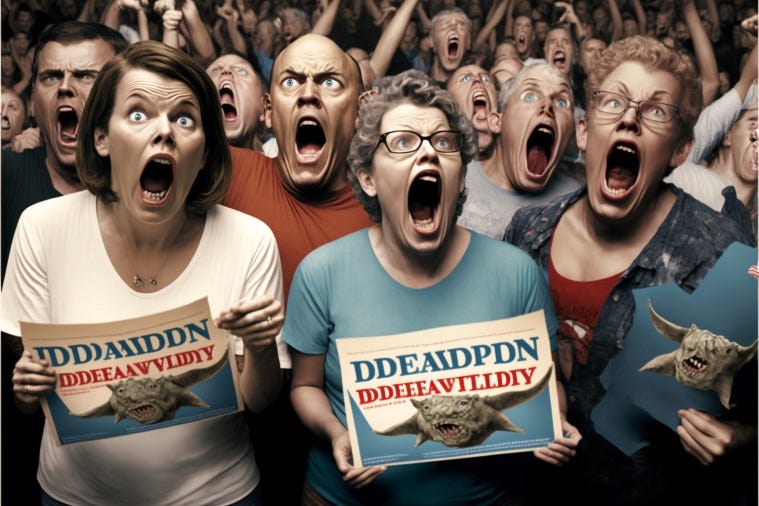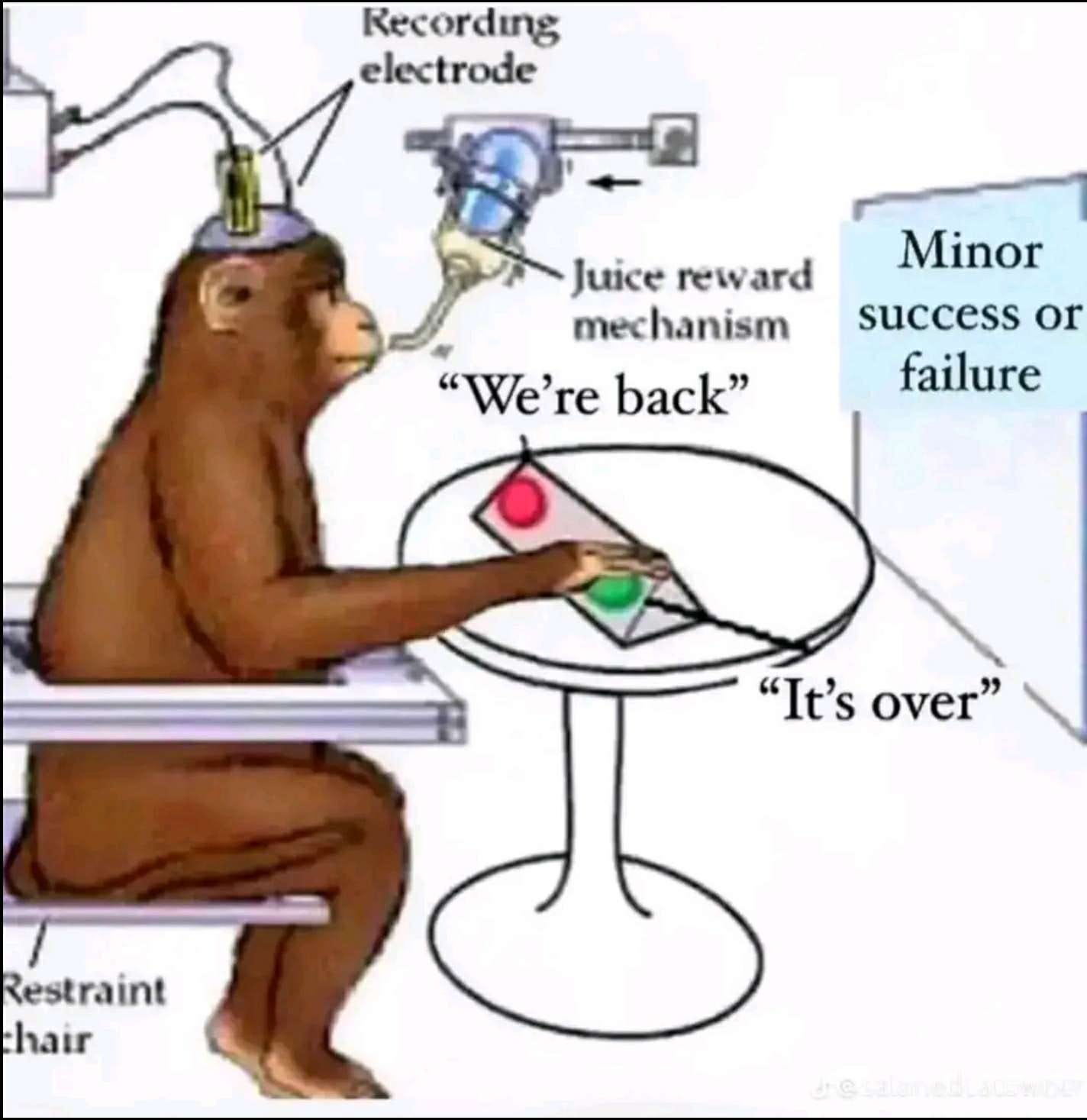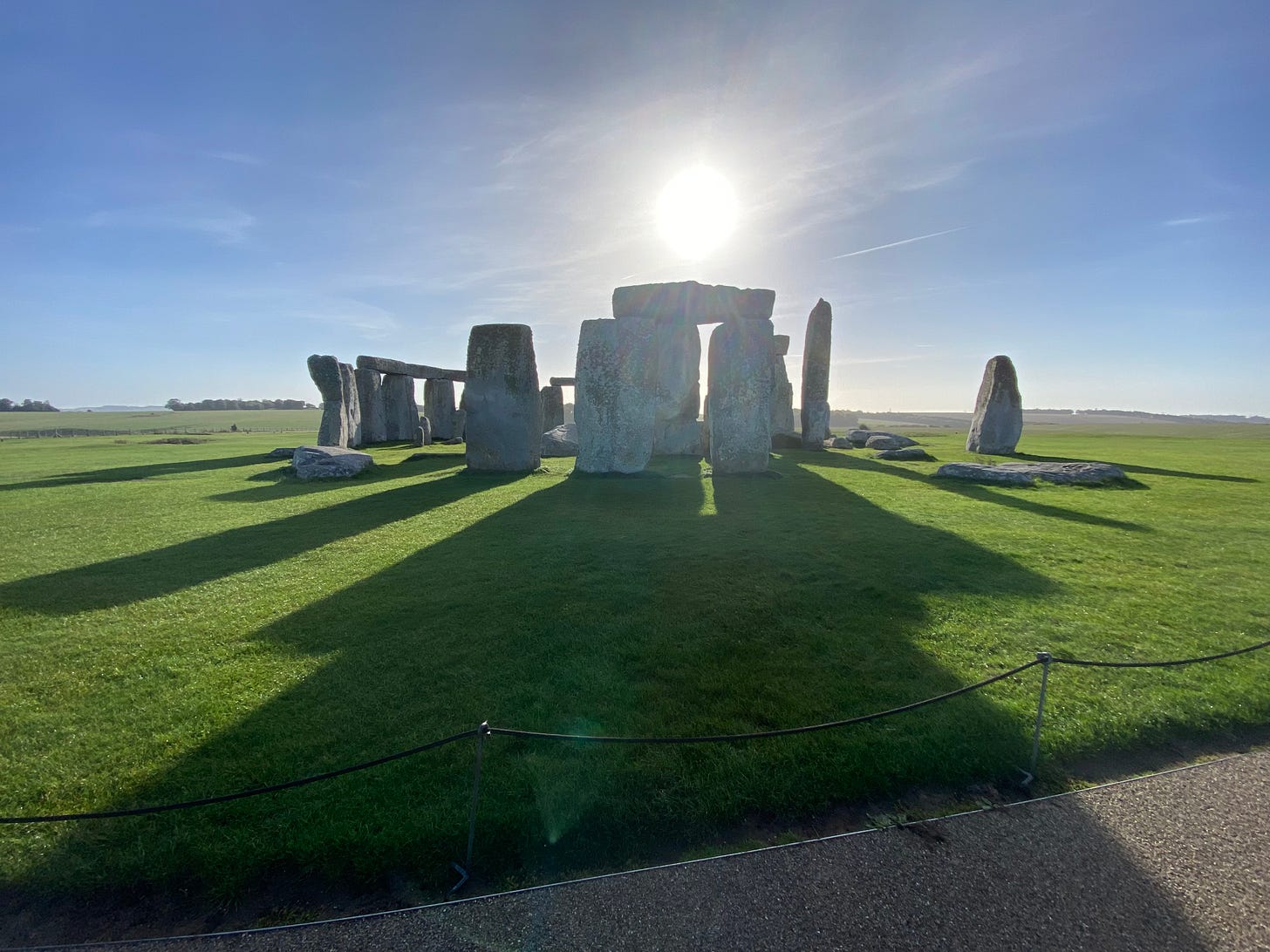Interregnum

There is a space of time that between two definitive points, called the indefinite. It is the difference between “the” and “a/an”.
A nation could be any nation, while the nation is an identifiable entity. No one cares about a king, a president, a Prime Minister, a pope, or a bishop. They who care give reverence to the king, or whichever other leader they accept. The definitive, it is personal, actual; it is the synthesis of the de jure and the de facto. It is stable, a rock amongst the rapids in the river of time fasted to the bottom like an anchor, saving all who are graced by its steady presence from the swirling entropic torrents below.
Such definitives are times of plenty and order. Men can put down roots and build lives in its security and stability. These are the eras in which civilization is made or decline is stayed, temporarily. When in life we are definitive, we possess something immaterial with which we take ownership. Thus we struggle for it whatever the cost. This particularism, rather than the indefinite “universalism” is the foundation of civilized man, and thus civilization.

The diminution of the definite, of the particular and the personal, is the murder of the possessive spirit regarding mankind, and its psycho-spiritual constructs. This evidently leads to decline, for then all significant investment into the future halts as there is no longer certainty; only chaos and fear that the investments will be lost.
Short-term thinking results and short-life history strategy becomes the norm. An air of “après moi, le deluge” (after me, the flood) comes into fashion, and soon the prophecy comes true. During the French revolution, the deconstruction of the Ancien Régime led to a vain attempt to restore meaning to the new Republicans, who struggled, drowning in the hollowness of being, in parallel with the masses of their fellows who were actually drowned in the Loire by their zealous hands.
The events of the French revolution are not on our minds enough, and certainly not enough to avoid a repeat of its horrors. This should weigh upon us heavily but doesn’t. This drive towards the indefinite was what ousted the particular King, for a republic so indefinite that it couldn’t determine guilt by its own machinations and so nearly all accused were marched to the gallows or drowned. Women, children, the elderly: it mattered not; even infants were murdered (often by bayoneting.) In this instance in interregnum, the scum and villainy boiled to the top. Great evils were done because the good allowed it out of fear, cowardice, or whatever else drove them to inaction. This is banality, the letting things collapse, ironically foretold by the Sun King Louis XIV himself.
We in the west are in a period of interregnum. Law and order is retained like a stuck shadow. Our rulers see it for the weakness it is and so stack shadow upon shadow in order to strengthen it and improve resilience. But shadows cannot be strengthened, and in any case, the weakness in law is not a lack of law but a lack of leaders to wield it. Our leaders too are shadows, empty vessels, spiritless, fasted to their false gods they call progress and tolerance. They tolerate too much and discern too little; their morality is twisted. They sacrifice children’s innocence and in many cases lives for material gain, or justify it with backward morals.
Consider as well, the complete cowardice shown during the Covid-19 pandemic. Many are far more guilty of cowardice than they would like to admit. It may have made logical sense at the start in some measure due to the fear of the unknown, the associated propaganda, and fear porn being beamed at us every minute. But even today “government officials” push an ineffective, dangerous experimental gene therapy to the masses, as if they don’t know the ruse is up. Today we still see many wearing masks out in public and no one has the courage to criticize them. At this point, they should be mercilessly mocked and bullied like they meekly did to the free-breathers and pure-bloods in the midst of their isoflavonic panic! All of this was performed live on air by our political “leadership “. Your paper “rights”, and your bodily autonomy, all surrendered like you were conquered. Because we are ruled by barbarians.

These are the fruits born through short-term thinking. We allow a façade to persist in promoting ideas of long-term planning, but it is fake. Everything is based on the panic-stricken now, financed through our futures, slowly beckoning the fate of civilization as if all is shrunk into the timeline of a single man’s life. Nothing great could be conceived but a great consuming ruin.
No, we feast on false nutrition in the form of soyslop, leaving us fat, weak, and emotional. This lack of self-control creates a ceaseless cycle, like a snowball, rolling downhill and growing ever more rotund with each turning, like the turning of the earth, the girthy mass expands and becomes normalized. Day, night, day, night… and despite these constant cycles, these giants do not awaken. They perpetuate their soy-slumber, or embrace death in as cowardly a fashion as they can muster. A life lived as a life lost, sacrificed gleefully to the cause of gluttony. Even our diets are in interregnum. Nothing short of a complete overthrow of our false kings and stewards can change this. Anything outside of that will fail to halt this slide into absolute decline. As it stands, this decline is inevitable. Satiated, soy-sodden slobs slap their suppered stomachs as they slide their gargantuan ghastly guts into a glamourless abyss of bestial bliss. So consumed by vice, so is consumed the civilization which molded these monstrosities.
These intruding stewards who hammer us with their vile weapons, worship a number of false gods to which they are driven to subject you to. The first is equality which posits that all life should be fair because all people are equal and so all failures must be the fault of a system and not the failed individuals, who could be endlessly re-molded to suit the needs of the steward and power.
Man, according to them, is nothing but the will made flesh, and have the will incongruent with that of power he shall be bent to it. Such is believed by the authoritarians of all men, who see them as nothing but fleshy extensions of their will. The now common reliance of power on so-called “experts” for decision-making is little different from that of the past priestly classes reading the entrails of sacrificed animals to determine the actions leaders should take. By favoring equality as a prime value we see that competence’s place on the planet has been usurped, and so in this illogical “rationality”, decline ceaselessly proceeds.
The second god of their fancy is “diversity”. This is power through the logic of division and destruction. Through this division, the steward rarely competes for the throne because no faction is large enough until some faction or other is able to ally with or conquer the others wherein it can be on a level playing field with Steward power. This division favors the Steward but weakens the security of the state. The Steward is an illegitimate ruler, of which he is aware. He is most concerned with his own power, a fact that cannot be ignored. As a result of the inward focus, outward focus diminishes, eventually weakening to the point where barbarians outside the walls cannot be kept at bay by force, for the force of the nation under the steward has turned too inward. Therefore, they are kept at bay by reputation or bribes. In some cases, these barbarians are integrated into the nation. This doesn’t prevent but merely stalls the coming conflict. By various means, the steward drains the national coffers and then drains the people entirely.
This begins to fracture his alliances and a tyranny grows. In turn, this brings disparate groups together out of survival necessity, and so the already delicate social fabric, this steward’s choice of Cultural Mosaic, cracks, and the underlying period of interregnum reveals itself. The society must choose either the particular definitive ruler, like the king, or rule by the indefinite, which may present itself in forms like a republic, democracy, or council of sorts. Thus we have this contrast between regnum and interregnum.
How do we know whether or not we are in Interregnum now? In interregnum, those in power seek to achieve legitimacy, having various methods. One is through putting to paper the limitations of both the “power” of power and the “rights”of the “people”. But keep in mind that these paper rights are in constant flux. As time goes by power will tend to consolidate and expand itself, while restricting the rights of the people. Paper rights are essentially a document meant to gain the submission of the population in question. It is in many ways much worse than a serf contract, which is at least unbreakable at both ends. Before you laugh that away, serfs lived in relative equality with their lords, often out together at public houses and inns, and also attending the same religious sermons. Compared to today, the gap between a serf and his lord was minimal and in many ways was much more cooperative than we are taught today in our liberal paradigm. This was a major complaint from those on the political left, yet strangely, none now advocate for a return to serfdom. In any case, we will probably continue through many iterations of interregnum until our society reaches a cultural sink deep enough that the long-buried bones of a long-waiting king can be revealed and elevated to take his rightful place at the head of the nation.
Many view the rise and fall of the Roman republic as representing the majority of Rome’s greatness. I contest here given my previous arguments that the Republicans represented instead interregnum. The last Roman king, Lucius Tarquinius Superbus came to power through the murder and assassination of his wife and elder brother. Is this not itself a decline in regal quality? It is certainly an indicator and was definitely used as justification for overthrowing the monarchy.
This new Roman republic went forward and expanded until it became swollen and corrupted, until a person of great courage in the right spot and at the right time, decided a change of course was necessary. First, we have the rise and fall of Julius Caesar, and the beginning of the Roman Empire, a return to the definitive.
It is already well understood that in post-empire Rome, during the rule of Odoacer, as king of Italy, a feudal or monarchical system persisted up until (at least in name) the Italian republic was done away with in 1946! Certainly, there were a number of different kingdoms, city-states, and minor principalities within what has become contemporary Italy, but such a particular definitive form in one way or another lasted some 1453 years! This is of course a longer length of time than Constantine’s city: Nova Roma (Byzantium/Constantinople) lasted under “Roman” rule (from 330 A.D. to 1453, A.D, approximately 1123 years). Keep in mind that Byzantium itself was under a definitive model of governance.
Consider as well that prior to the advance of “democracy”, most military conflicts involved only hundreds to perhaps thousands of soldiers, essentially exclusive to the upper-class elites and handfuls of retainers or conscripts. But after the French revolution and the Levée en Masse, any army that didn’t include the whole national effort for total war, was doomed to fail, and so democracy ever since has become a government of total war and violence unlike anything seen before, outside some of the classical civilization and the Far East.
I am here to establish a new point of view, that despite the pomp and ceremony, despite the semblance of law and order, and despite our own alleged rights claims, we are in a time of interregnum. When did it begin? It will vary by place; for instance, for the French, it would have been during the French revolution; for the Russians during the Bolshevik revolution. From here, things get controversial. The ending of the British empire, it would likely be for the Brits; and most likely in the founding of the USA for Americans. The end of World War I it was for the Germans. 1944 for the Icelanders. 1889 for Brazil. Included in the ending of the British empire is the tragic case of Canada formed in 1867 to be smothered in its own crib; this was formalized in 1982 with the Canadian charter of rights and freedoms, which is a magical piece of paper capable of containing all of Canada‘s hopes and dreams so that they can be crumpled up and tossed away by the courts.

However, which way you think of it, damning evidence breaks the liberal delusion of functional and stable democracy. There never has been one, and our largest wars, which killed more people than under any other system, have always been under the auspices of indefinite systems like democracies and republics. Indefinitive government is met with unending indefinite problems, and these problems will continue until a definitive solution beckons forth from the chaos or ruins, and makes right which has for so long been wrong. Long live whosoever King that be.